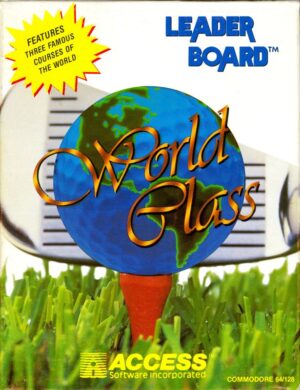Retro Replay Review
Gameplay
Astroclone delivers a compelling blend of strategic planning and fast-paced action that keeps players on their toes. Starting at the navigation computer in the Sol sector, you must choose your destination based on the indicated Seiddab threat level—this simple mechanic adds a layer of risk-versus-reward decision-making before each engagement. Once you warp into a sector, the side-scrolling shoot ’em up mode kicks in, channeling classic Defender-style gameplay with looping terrain and relentless waves of enemies.
(HEY YOU!! We hope you enjoy! We try not to run ads. So basically, this is a very expensive hobby running this site. Please consider joining us for updates, forums, and more. Network w/ us to make some cash or friends while retro gaming, and you can win some free retro games for posting. Okay, carry on 👍)
The action doesn’t stop when you clear a sector; enter one of the ominous Seiddab bases and you transition into an arcade-adventure hybrid. Here, you explore maze-like interiors, collect and manipulate objects, and uncover each base’s unique destruction method. This puzzle-oriented section breaks up the shooting sequences, forcing you to think on your feet and adapt your approach rather than relying on pure firepower.
Adding to the tactical depth is the concept of your crack pilot being cloned fifteen times. You effectively command an army of near-identical pilots, each flying its own spacecraft. This narrative device isn’t just for show—it subtly encourages you to manage resources and strategize which clone tackles which sector or base. The result is a multi-faceted gameplay loop that feels greater than the sum of its parts.
Controls are responsive, with a familiar layout that veterans of 2D shooters will appreciate. Maneuvering through asteroid fields and dogfighting Seiddab ships feels intuitive, while the inventory and object-manipulation mechanics inside bases are straightforward enough to prevent frustration. Occasional difficulty spikes do occur, but they serve to highlight your growing skill rather than punish trial-and-error play.
Graphics
Astroclone’s visual presentation is a love letter to the golden age of shoot ’em ups, featuring crisp pixel art and smoothly animated sprites. In the open-sector battles, starfields scroll seamlessly behind detailed asteroid formations, giving a genuine sense of depth and motion. Enemy Seiddab ships boast distinct silhouettes and color schemes, ensuring you can identify threats at a glance.
Inside the star bases, the art style shifts to moody interiors filled with intricate machinery, glowing conduits, and ominous pylon structures. Each base feels visually unique—a testament to the designers’ attention to detail. Though the color palette is limited by retro aesthetics, clever use of contrast and shading keeps environments from feeling monotonous.
Special effects such as explosions, laser beams, and teleportation portals are handled with satisfying flair. Particle effects flicker and dissipate in a way that recalls classic arcade hardware, yet never feel dated. Performance remains rock-solid throughout, with no noticeable slowdown even during the most chaotic firefights.
On modern displays, Astroclone scales gracefully, preserving pixel-perfect clarity without introducing aliasing or artifacting. Whether you’re zoomed in for close-up action or zoomed out for a strategic overview, the game’s visuals offer both style and functionality, helping you stay immersed in the battle against the Seiddab menace.
Story
At its core, Astroclone spins a concise but engaging premise: the Seiddab—a relentless alien adversary—must be eradicated once and for all. To achieve this, a legendary pilot has been cloned fifteen times, creating an elite squadron of nearly identical warriors. This cloning twist not only provides a narrative impetus for multiple lives but also underscores the desperation of humanity’s fight for survival.
While the overarching plot is minimal, it serves as a strong framework for the game’s multi-section structure. Each sector represents a strategic foothold that the player must secure, while each star base houses a distinct puzzle to solve. Discovering the backstory of each base—through environmental clues and object descriptions—adds a layer of lore that rewards careful exploration.
The Seiddab themselves remain mysterious throughout, their motives hinted at but never fully explained. This deliberate ambiguity keeps the focus on gameplay while allowing the player’s imagination to fill in the gaps. As you wipe out pylons and infiltrate enemy strongholds, you feel the weight of a universe on the brink of annihilation.
Though the narrative doesn’t feature lengthy cutscenes or expository dialogue, subtle touches—like the pilot’s archived logs and intercepted communications—paint a vivid picture of a galaxy at war. This lean approach to storytelling ensures pacing never drags, while still giving enough context to make each victory feel meaningful.
Overall Experience
Astroclone stands out as a holistic package that masterfully weaves together strategic navigation, high-octane shooting, and puzzle-driven exploration. The interplay between choosing sectors on the navigation computer and diving into two distinct gameplay modes creates a satisfying ebb and flow, preventing monotony and keeping players engaged session after session.
The learning curve is balanced: early sectors act as training grounds, while later levels demand precise reflexes and clever problem-solving. The challenge is fair, with the occasional spike pushing you to refine your tactics rather than resorting to brute force. This sense of progression—both in your skill and in the story—makes each breakthrough feel earned.
Replayability is high, thanks to the varying threat levels of sectors, the randomized layout of some bases, and the subtle differences between your fifteen cloned pilots. While the core loop remains consistent, minor variations ensure that no two playthroughs feel identical. For fans of retro-inspired action and adventure, Astroclone is a compelling journey that delivers on both nostalgia and innovation.
In summary, Astroclone offers a rich, multi-layered experience that challenges and rewards in equal measure. Its polished gameplay, cohesive presentation, and streamlined narrative combine to form a game that both honors classic design principles and carves out its own unique identity. Whether you’re a veteran of side-scrolling shooters or a newcomer seeking a dynamic sci-fi romp, Astroclone is worth plotting a course for.
 Retro Replay Retro Replay gaming reviews, news, emulation, geek stuff and more!
Retro Replay Retro Replay gaming reviews, news, emulation, geek stuff and more!









Reviews
There are no reviews yet.